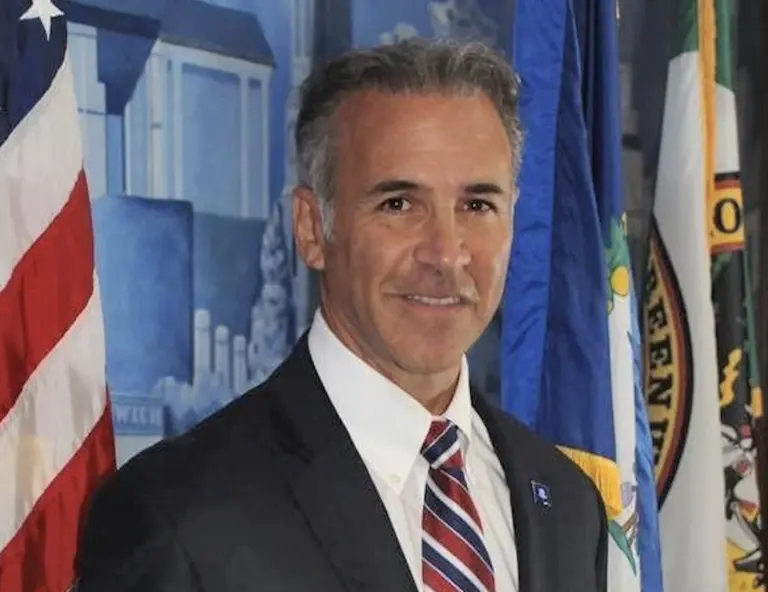By Marek Zabriskie
Peter Hawkins, who was our theologian-in-residence at Christ Church Greenwich over Holy Week, lost his grandmother when he was three years old. She wore colorful hats with feathers and made the sweetest tea, he recalls. She visited his family’s apartment each day and played games with him. One day she did not appear.
“Where was grandmother,” Peter asked. His father was traveling in England, and his mother was alone. She thought that the death of a grandmother was too much for her son to comprehend. Peter looked for her in the familiar places where she hid when they played hide and seek, and he kept asking about her.
One night his mother took him out on the fire escape, and they looked for the brightest star in the sky. “That’s where she is now,” said his mother. “She’s with God, twinkling down her love for you from her new home in heaven.” Hawkins writes, “I no longer had to hunt for her in the closet or behind the sofa.
Anytime I wanted to visit, all I had to do was wait for evening. She was only a star away.” But “Inevitably,” he adds, “there comes a time to put away childish things, and Grandma as celestial constellation was…. one of them. No more twinkling stars. Heaven itself began to seem suspect.”
That’s a human dilemma, because what comforts us as children often fails to comfort us as adults. When someone we cherish dies, we need real hope, not fairytales. As a priest I have been privileged to share the final days, weeks and months of life with many people as they approach death.
I have witnessed a profound difference in the way that people die. Those who have nurtured and developed a deep sense of faith depart this life with a sense of inner peace, trusting that when they let go of their hold on this life something new and beautiful will begin.
Their faith makes their dying and departure much easier on those around them. They trust that they will be reunited with loved ones who have gone before them and will spent eternity with them.
But those who have not taken time to develop and nurture their faith in the ultimate hope that God offers us often die clutching onto this world in despair and often in fright. Their passing is far less peaceful and much harder on those around them for they believe that life is completely over when they die and they shall never see their loved ones again.
Do not go gentle into that good night.
Rage, rage, against the dying of the light.
Throughout most of history, there was no hope after death. The Greco Romans spoke of Elysian Fields, where the dead walked like shades in the underworld with faces that could not clearly be distinguished. By the time of Jesus, the Pharisees believed that when the Messiah visited earth there would be in an eventual resurrection to eternal life.
The dead who lay buried in their tombs would rise from the dead. No first century Jew prior to Jesus imagined that one person would rise from the dead in advance of all the rest. This is why when standing by her brother Lazarus’ tomb, Martha told Jesus, “I know [my brother] will rise again in the resurrection on the last day.”
Then came Jesus. He never traveled more than 50 miles from where he was born, never held a public office, never wrote a book, never led an army. He never did anything that we normally associate with greatness, yet his life has made more impact than any other person on our planet.
He exemplified grace and mercy, performed countless miracles, healed the lame, cured lepers, fed the starving, lifted up the downtrodden and taught with incredible authority. But he fell out of favor with the authorities and was put on trial, judged, tortured, and then executed on a cross. Then they laid him in a barren tomb.
All four gospels recount the Resurrection. It is central to each story. Take away the stories of Jesus’ birth, and you lose only two chapters of Matthew and two chapters of Luke, but take away the Resurrection, and you lose the entire New Testament.
The gospels disagree on details. How many women went to the tomb? How many angels did they meet? Did Jesus reappear in Jerusalem or Galilee or both? But the gospels all agree that something remarkable took place.
But in the gospel Resurrection appearances, Jesus isn’t some disembodied soul. He is flesh and blood. Where Jesus speaks of the “soul” in the gospels, he isn’t referring to some incredibly deep part of us that will continue to exist after we die and our bodies are removed like the husk taken off an ear of corn, but rather he is alluding to the whole self, the whole human being.
What will heaven be like. Thomas Aquinas wrote that heaven will be absolutely static, with the blessed enjoying a beatific immobility. Augustine had a better suggestion. He said that one of the ways that the blessed might see God “face to face” would be to perceive him in the glorified faces of one another.” In other words, if you seek the Lord, look around you.
Will there be golf, shopping, bird watching, and visits with grandchildren in heaven? Will there be angels and archangels, flashes of lightning and peals of thunder, and Baroque music? We don’t know.
We only know that when the time comes, we might say the words that Jesus whispered, “Father, into your hands I commend my spirit,” and trust that the God who birthed us into life will usher us safely into the new Jerusalem, which will surpass what we can imagine.
The Rev. Marek P. Zabriskie is the Rector of Christ Church Greenwich, which was founded in 1749 and is one of the largest Episcopal Churches in the northeast.





